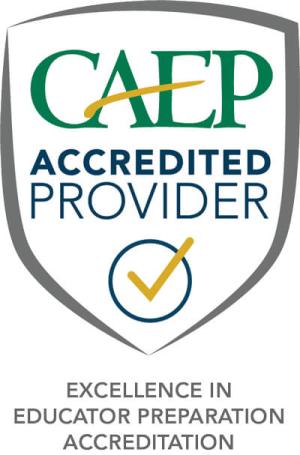Accreditation
Accreditation
Accreditation
The Graduate School of Education and Human Development (GSEHD) prioritizes conducting and supporting programs in assessment and program evaluation, including data collection and analysis. These activities ultimately support program improvement. The school engages in annual program assessment (APA), periodic academic program review (APR), and accreditation activities for specific programs. This includes:
- Ensuring quality assessment development, administration, and analysis that lead to continuous improvement
- Collecting information about program impact for graduates and employers
- Maintaining an assessment system that ensures consistency across programs and departments
- Facilitating national accreditation processes (e.g., CAEP, CACREP)
- Contributing to GW in its Middle States accreditation processes
CAEP Accreditation
The Graduate School of Education and Human Development (GSEHD) at the George Washington University (GW) is accredited by the Council for the Accreditation of Educator Preparation (CAEP), the national agency that accredits P-12 educator preparation providers.

CACREP Accreditation
The Graduate School of Education and Human Development (GSEHD) at the George Washington University (GW) is accredited by the the Council for Accreditation of Counseling and Related Educational Programs (CACREP), a nationally-recognized accrediting body that offers accreditation to graduate-level counseling programs. The specialized practice areas and doctoral program were found to meet all standards in a satisfactory manner.
The following programs have received accreditation through October 31, 2030:
Licensure Disclosure
The George Washington University (GW) is accredited by the Middle States Commission on Higher Education (MSCHE), one of the six U.S. accrediting organizations that is recognized for its quality reviews by the Council for Higher Education Accreditation (CHEA) and the United States Department of Education (USDOE). Higher education institutions that are accredited by U.S. recognized accrediting organizations are eligible to receive Title IV funds, which include federal financial aid grants and other federal funds.
Recognized as a Title IV approved institution, GW, including its Graduate School of Education and Human Development (GSEHD), provides disclosures pertaining to all GSEHD programs leading to a specific professional licensure or certification within each of the U.S. states.
All educator preparation licensure and endorsement programs offered by GSEHD are approved by the Council for the Accreditation of Educator Preparation (CAEP) and the Office of the State Superintendent of Education (OSSE), the state education agency for the District of Columbia. Through OSSE, our educator preparation programs are designed to meet the educational requirements and eligibility for licensure and certification in the District of Columbia.
Please note, teacher and administrator certification is granted by individual state education departments, not any university. We recommend consulting with the appropriate licensing agency or board in the state or territory for which licensure is sought prior to beginning any course of study. For more information about a specific state, please contact the appropriate state’s licensure agency.



